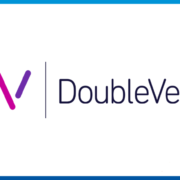Data Privacy and Marketing: Balancing Personalized Marketing with Consumer Privacy Concerns in the Digital Age

In an era where data is an invaluable asset and personalization is paramount, the intersection of data privacy and marketing has become a focal point for businesses worldwide. The digital age has ushered in unprecedented opportunities for companies to connect with consumers on a personal level, leveraging vast amounts of data to tailor marketing messages and offerings. However, this data-driven approach also raises significant concerns about consumer privacy and the ethical use of personal information.
At the heart of personalized marketing lies the collection and analysis of consumer data. By tracking online behavior, purchase history, and demographic information, companies can create highly targeted campaigns that resonate with individual preferences and interests. From personalized product recommendations to tailored email campaigns, this level of customization has revolutionized the way businesses engage with their audience, leading to higher conversion rates and increased customer satisfaction.
Yet, amid the pursuit of personalized marketing, consumers are becoming increasingly aware of the value of their personal data and the importance of protecting their privacy. According to a survey by Deloitte, 91% of consumers believe that companies should be transparent about how they collect and use their data to build trust. High-profile data breaches and incidents of misuse have fuelled distrust among consumers, prompting calls for greater transparency and accountability from businesses. In response, governments around the world have implemented regulations such as the GDPR and CCPA to safeguard consumer data and empower individuals with greater control over their information.
For marketers, navigating this landscape requires a delicate balance between delivering personalized experiences and respecting consumer privacy rights. While data-driven insights can provide valuable opportunities for engagement, they must be obtained and used ethically and transparently. This means obtaining explicit consent from consumers before collecting their data, providing clear explanations of how data will be used, and offering options for individuals to opt out of data collection or processing. According to a report by Forrester, 66% of marketers are planning to increase their investment in AI to improve customer experiences, while also grappling with data privacy implications.
Moreover, marketers must recognize that consumer trust is a fragile commodity that can be easily eroded by perceived violations of privacy. In an age where reputation is everything, businesses must prioritize transparency and accountability in their data practices to maintain consumer trust and loyalty. This includes implementing robust security measures to protect sensitive data, being upfront about data collection practices, and honouring consumer preferences regarding data usage.
Furthermore, marketers should view data privacy not just as a compliance issue but as a strategic imperative. By adopting privacy-by-design principles, businesses can integrate privacy considerations into every aspect of their marketing strategy, from campaign development to customer engagement. This proactive approach not only helps mitigate the risk of regulatory non-compliance but also fosters a culture of trust and transparency that resonates with consumers.
In practical terms, this may involve implementing privacy-enhancing technologies such as anonymization and encryption to protect consumer data, conducting regular audits of data practices to ensure compliance with regulations, and providing ongoing education and training for employees on data privacy best practices.
Ultimately, the key to balancing personalized marketing with consumer privacy concerns lies in transparency, accountability, and respect for individual rights. By putting the needs and preferences of consumers first, businesses can build stronger, more meaningful relationships with their audience while safeguarding their trust and loyalty. In an increasingly data-driven world, prioritizing privacy is not just a legal obligation but a moral imperative for businesses looking to thrive in the digital age.
Read Also: Elevating Monetization: APAC Mobile Publishers’ Path To Progress
About the author
Janvi Mankani, Founder and Director, Mint + Milk Communications














